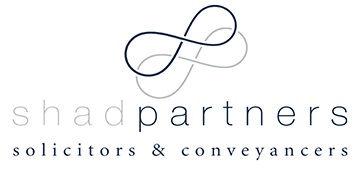Litigation can be both a time consuming and costly exercise. In some legal disputes, you might end up being liable for not only your own legal costs but also the costs of the opposing party.
As such, it is important to understand the possible cost consequences of commencing or defending a legal claim.
Costs follow the event
The general rule is that costs “follow the event”. What this means is that at the end of the litigation, the successful party is generally entitled to receive its cost from the unsuccessful party.
The purpose of an order for costs is to compensate the party in whose favour it is made, and not to punish the party against whom the order is made.
Different types of costs orders
The Court has the power to make different types of costs orders, including the following:
- court “scale” costs: regardless of the actual costs incurred by the successful party, there are circumstances where an order for costs is limited to a scale set by the Court. This often occurs in debt recovery matters.
- party/party costs: the costs awarded by a Court will generally be on what is called an ordinary basis or party/party basis. A party/party costs order allows the successful party to recover those costs it actually incurred and which were necessary or proper for the attainment of justice. Party/party costs generally fall within the range of 60-75% of the actual legal costs incurred.
- indemnity costs: in the event the Court considers there has been some conduct by the unsuccessful party which warrants a departure from the usual rule of costs on an ordinary basis, the Court can exercise its discretion to impose a costs order on an indemnity basis. Such an order allows the successful party to recover all of its reasonable costs incurred in respect of the dispute. Indemnity costs can amount up to 95% of the actual costs incurred.
Circumstances when costs might not follow the event
As noted above, the consequence of the rule that costs follow the event, is that successful parties receive their costs, in the absence of special circumstances justifying some other order.
The usual rule may be departed from if the successful party failed to win on certain issues which took up a significant part of the hearing. In such circumstances, a Court may not only order that the successful party be deprived of its costs associated with those issues, but that it pay the other party’s costs of arguing those issues.
The Court may also exercise its discretion to depart from the usual costs order where there has been an offer of compromise or settlement offer during the course of the proceedings, which was unreasonably rejected by the recipient of the offer.
For example, a party may reject an offer, proceed to hearing and then fail to obtain an amount which is greater than the original offer. In those circumstances, a Court can use its discretion to order the recipient of the offer to pay the other party’s costs on an indemnity basis from the time when the offer was made, to the completion of the hearing. In this way, the Court can use costs orders to encourage early settlement of disputes.
Unrecoverable costs
It is crucial to note that not all costs associated with the litigation process are recoverable. The hidden costs of having employees of the business deal with the claim (either by liaising with lawyers or providing evidence at hearing) and the costs of potential reputational damage are not recoverable, not matter what the outcome of the dispute is.
Conclusion
Before commencing proceedings or making a decision to actively defend a claim, it is imperative that you have an understanding of the possible costs implications of the litigation process. The potential costs of litigation can impact how the claim is conducted and any settlement strategy which might be adopted.
If you or someone you know wants more information or needs help or advice, please contact us on 02 9790 7000 or email [email protected].
